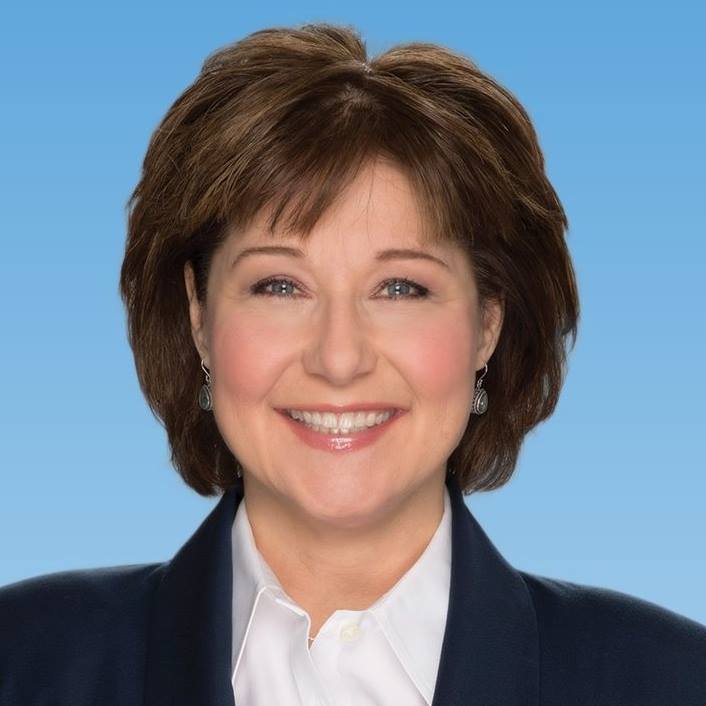Canada News
Premier Clark calls on Ottawa to ban coal exports after softwood lumber duties

Clark wrote a letter to Prime Minister Justin Trudeau asking Ottawa to ban the shipment of thermal coal through B.C. ports, the bulk of which comes from the United States. (Photo: Christy Clark/ Facebook)
SURREY –Premier Christy Clark is taking aim at the American coal industry in the wake of the United States imposing hefty tariffs on British Columbia’s softwood exports.
Clark wrote a letter to Prime Minister Justin Trudeau asking Ottawa to ban the shipment of thermal coal through B.C. ports, the bulk of which comes from the United States.
The B.C. Liberal leader made the announcement Wednesday at a paper products company in Surrey while campaigning for the May 9 provincial election, saying an impasse over softwood lumber “gives us the freedom to do what I think is unquestionably the right thing.”
Thermal coal is dirty, she said. “It fouls the air. It fouls the oceans. It’s terrible for the environment.”
Clark said a ban will help develop the province’s liquefied natural gas industry, arguing if China shifted from coal to LNG it would have “a massive impact” on greenhouse gas emissions.
“It’s the right thing to do, but I haven’t felt free to be able to do that because I haven’t wanted to upset negotiations that seemed to be going along, granted at a slow pace,” she said.
“But now that they have slapped a duty on Canada and they’re calling us names, we’re free to take an action that’s long overdue.”
The U.S. is imposing duties of up to 24 per cent on lumber imports from Canada. The B.C. Lumber Trade Council says the province exports $4.6 billion in softwood lumber to the U.S. each year.
The federal government was unable to provide an immediate comment.
Westshore Terminals (TSX:WTE), the company that handles the shipping of a large portion of the U.S. coal, issued an open letter asking the prime minister to reject Clark’s call for a ban.
“We recognize that Canada is in a dispute with our most important trading partner, but we hope that our leaders will consider the best interest of all Canadians and not punish Canadian companies and workers by putting one industry ahead of another,” the letter says.
It says about one-third of Westshore’s business, or about $100 million in annual revenue, is directly attributable to the coal it handles for its American customers.
The company’s stock price fell 11.80 per cent on Wednesday.
Green Leader Andrew Weaver said he was pleased by Clark’s lobbying efforts to ban thermal coal, but he accused the Liberals of waiting too long to act.
“Washington, Oregon and California have already moved to ban thermal coal exports. It is high time that British Columbia showed leadership on this issue as well,” he said in a statement.
“I sincerely hope that this move the premier has made is more than just election politics.”
NDP Leader John Horgan said as premier he would speak with Trudeau about energy, raw log exports and “a whole host of issues that I believe we have to play on this negotiation.”
Horgan was in Burnaby on Wednesday where a campaign stop focused on the soaring price of housing in Metro Vancouver.
Researcher Clark Williams-Derry said it is difficult to underestimate the impact a ban on thermal coal exports would have for the coal industry in the western U.S.
“Essentially, what this does is it wipes out the last remaining option for U.S. coal exporters to get their products off the northwest coast to Asia,” said Williams-Derry, who works for the Sightline Institute, an energy think tank based in Seattle.
“If this goes through, it pretty much puts the kibosh on any export potential for the future.”
The American coal industry has fought unsuccessfully for years to expand export capacity on the American West Coast, meaning virtually all thermal coal in the western U.S. travels through B.C., Williams-Derry said.
Records from the Vancouver Fraser Port Authority show that 94 per cent of the 6.6-million tonnes of thermal coal exported through the Port of Vancouver in 2016 came from the United States.
Williams-Derry said it will be difficult for Clark to use thermal coal as a bargaining chip in negotiations around softwood now that she is on the record saying coal is dirty.
“The genie is now out of the bottle,” he said.
“This is a game of brinksmanship, and what she has done in that statement is push things past that brink. There’s a line in the sand and it’s going to be difficult for her to walk back from that.”





















